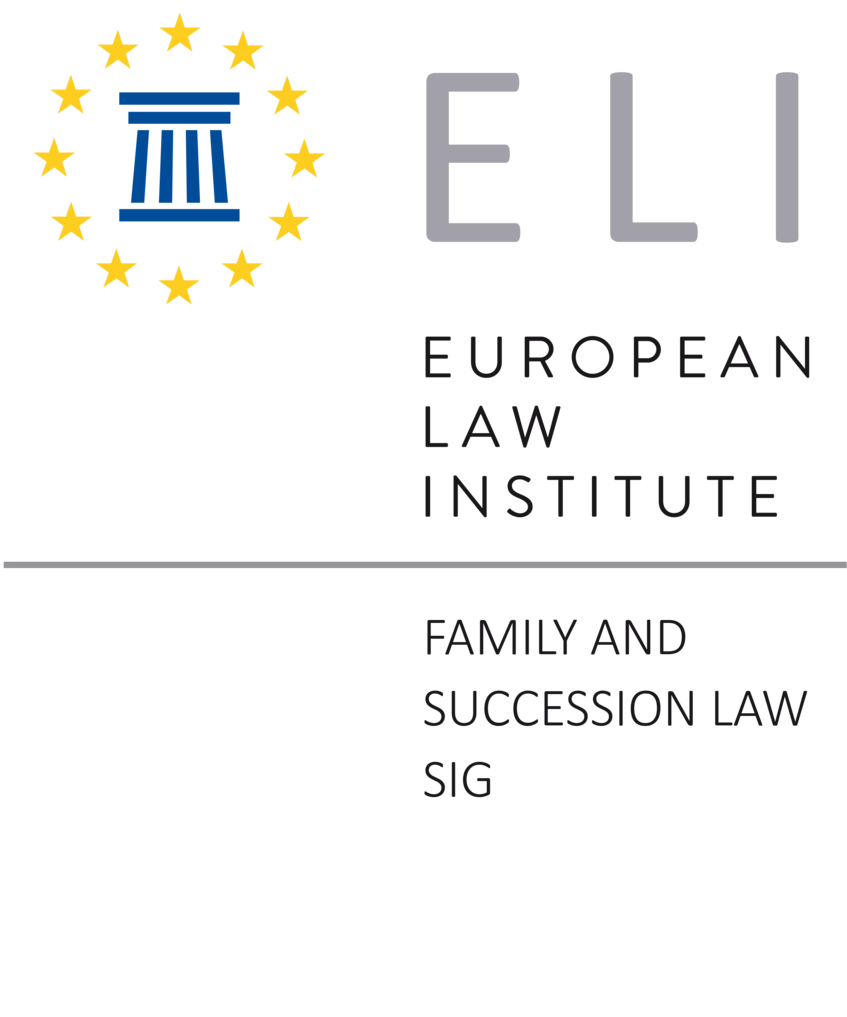by Claudia Madrid Martínez
On 17 March 2023, the Civil Chamber of the Supreme Court of Justice issued a decision whereby it annulled a judgment on appeal and decided the merits of the case, which concerned a bill of exchange issued in Curaçao, binding Venezuelan citizens domiciled in Venezuela.
The interesting thing about this judgment is that the Civil Chamber set aside the reasoning of the court of appeals according to which, since there are no international treaties in force between Venezuela and Curaçao, and there are no rules on bills of exchange in the Venezuelan Act on Private International Law, the Inter-American Convention on Conflicts of Laws concerning Bills of Exchange, Promissory Notes and Invoices should be applied by analogy and, consequently, “the Law of the place where the obligation was contracted” (art. 1), i.e., the Law of Curaçao, should be applied to the bill of exchange.
It should be noted that, on the one hand, the only Conventions in force for Venezuela regarding bills of exchange are the Inter-American Convention on Conflicts of Laws regarding Bills of Exchange, Promissory Notes and Invoices, and the Bustamante Code. On the other hand, the Act on Private International Law does not establish rules on International Commercial Law, since —as stated in the Explanatory Memorandum— this matter must be developed within the Commercial Law itself in accordance with the general principles set forth in the Act on Private International Law.
In addition, Article 1 of the Act on Private International Law provides two tools to integrate the gaps in the Act and, in general, the gaps in the Venezuelan Private International Law system. This rule refers to analogy and to the generally accepted principles of Private International Law.
In the past, case law has admitted the application of treaties in force for Venezuela, but not for the other States involved in a specific case, either by analogy (Supreme Court of Justice, Political Administrative Chamber, judgment of 23 February 1981), or on the understanding that their solutions can be characterized as generally accepted principles of Private International Law (Second Court of First Instance in Commercial Matters of the Federal District and Miranda State, judgments of 29 February 1968 and 12 March 1970). Therefore, in this case, the arguments used by the court of appeal in analogically applying the Inter-American Convention were not erroneous.
The Civil Cassation Chamber, however, had another idea when it understood that the judge of appeal erred in the application of the Law of Curaçao to settle the case. Thus, the Chamber began by reaffirming the existence of “relevant foreign elements, such as the place of issuance of the bill of exchange, i.e., Curaçao, and the domicile of the parties involved in Venezuela”. The latter criterion, in fact, is not a foreign element, since it is located in the forum.
The Chamber then cites Article 1 of the Act on Private International Law, and concludes that there are no treaties in force, applicable to the case since Curaçao has not ratified any of the aforementioned treaties, and proceeds to the application of the domestic rules of Private International Law.
In particular, the Civil Chamber intends to determine, in the first place, the Law applicable to the form of the bill of exchange, which is why it resorts, rightly, to Article 37 of the Act on Private International Law, a rule that governs the form of all kinds of legal acts, which is perfectly applicable to bills of exchange, and also, as is well known, it establishes the locus regit actum principle in an alternative manner. Indeed, the rule allows the judge to choose between the Law of the place of conclusion of the act, which governs the substance of the act, and the Law of the domicile of the person doing the act, or of the common domicile of the persons doing the act.
Under Article 37, the choice of the connecting factor applicable to the specific case will depend on the favor validitatisprinciple, i.e., the judge must determine the Law applicable in order to favor the formal validity of the act. In this case, the Civil Chamber decided to apply the domicile criterion, without explaining why, although, basically, the reason can be intuited from the fact that the judge ended up applying Venezuelan law.
The Civil Chamber then begins its examination of the Law applicable to the merits and, in this regard, “finds it pertinent to bring up the provisions of Article 30 of the Act on Private International Law”, a rule that establishes the Law applicable to international contracts in cases where the parties have not chosen it. The nature of a bill of exchange can certainly be discussed, but it is not a contract.
In any case, the Civil Chamber does not justify its action, that is to say, it does not indicate the reason why a rule governing contracts should be applied to a bill of exchange. However, I do not know if this was consciously done, but it did leave out a series of points that are of great interest in the field of international contracts. Let us see.
The first thing the Chamber does is to identify, in accordance with Article 30 of the Law, the objective and subjective elements of the relationship, in order to determine with which Law the bill of exchange is more closely related and assumes for this purpose —although it does not quote it— the opinion expressed by Professor Fabiola Romero in her work “Derecho aplicable al contrato internacional” (in: Liber Amicorum, Homenaje a la Obra Científica y Académica de la profesora Tatiana B. de Maekelt, Caracas, Facultad de Ciencias Jurídicas y Políticas, UCV, Fundación Roberto Goldschmidt, 2001, Volume I, pp. 203 ss.), understanding that the subjective elements refer to the parties and the objective ones to the relationship itself.
Thus, the Civil Chamber includes in the subjective elements the nationality and domicile of the parties —all located in Venezuela—; and, within the objective elements, the place of subscription of the bill of exchange —Curaçao—, the place of payment —understanding as such the place indicated next to the name of the drawee and located in Curaçao—, and the fact that the bill is intended to be enforced and performed in Venezuela.
Then, in accordance with the last part of Article 30 of the Act on Private International Law, according to which the judge “shall also take into account the general principles of International Commercial Law recognized by international organizations”, the Civil Chamber analyzes such principles. And it does so considering their so-called conflictual function, since in this case they will be used, not to settle the merits, but to search for the Law applicable.
However, the principles sought by the Civil Chamber are contained in international treaties. Firstly, the 1980 Rome Convention on the Law Applicable to International Contracts —now absorbed by the 2008 Rome I Regulation—, which refers to the closest links, but based rather on the questioned criterion of the characteristic performance. Secondly, Article 9 of the Inter-American Convention on the Law Applicable to International Contracts, rule that inspired the solution of Article 30 of the Act on Private International Law.
After reaffirming the application of the Law with which the bill of exchange is most closely connected, the Civil Chamber refers Article 31 of the Act on Private International Law, and understands that “in the event of a dispute regarding the Law to be applied, in the case of a contract or obligation of international origin, in the absence of a choice of Law by the parties or when it is ineffective, the judge shall apply ‘…when appropriate…’, that is, according to the specific case, the Lex mercatoria, which includes the usages, customs and commercial practices of general international acceptance”.
This rule leads the Chamber to consider the UNIDROIT Principles and it decides to apply them on the basis of the so-called negative choice —a discussed solution in the world of arbitration—, admitted by the Preamble of the Principles. Indeed, the Principles may be applied “when the parties have not chosen any law to govern their contract”.
Thus, the Civil Chamber ends up understanding that, in the absence of indication by the parties, in case of a monetary obligation, the place of performance will be “at the obligee’s place of business” (art. 6.1.6[1][a]).
“Now, considering the objective and subjective elements that are directly linked to the referred bill of exchange, as well as the general principles of International Commercial Law accepted by international organizations, the customs and manners of international trade, known as Lex mercatoria, according to Articles 30 and 31 of the Act on Private International Law, it is concluded that the Law applicable to the performance of the bill of exchange shall be the Law of the place of performance, it is concluded that the Law applicable to resolve the merits of the case is Venezuelan Law, given that the parties are Venezuelans, their domicile is in the Bolivarian Republic of Venezuela and the commercial instrument, although signed in Curaçao, is intended to be enforceable in the Bolivarian Republic of Venezuela. It is hereby declared”.
The Civil Chamber applied Venezuelan Law to both the form and the substance of the bill of exchange. But there is more, when deciding on the merits, instead of following the solution of the UNIDROIT Principles and calculating interest according to the Law of the State of the currency of payment (art. 7.4.9), it did so instead “at the rate of five percent (5%) per annum, according to Article 456, ordinal 2° of the Venezuelan Commercial Code… for which the conversion into bolivars must be made at the rate established by the Central Bank of Venezuela for the day of payment, all this through a complementary expert opinion, in accordance with Article 249 of the Code of Civil Procedure and not as erroneously requested by the plaintiff, that is to say, calculated at the legal interest rates that have been fixed for each semester by the Central Bank for Curaçao and St. Martin (Centrale Bank Curaçao en Sint Maarten)” (bold in the original).
There are undoubtedly some noteworthy aspects of this decision that hopefully will be taken into account in the future in cases related to international contracting. Others, such as the characterization of a bill of exchange as a contract, the disregard of the possibility of applying international treaties by analogy or as general principles, and the calculation of interest on an international obligation, denominated in foreign currency, in accordance with Venezuelan Law, could rather be forgotten.
Translated by the author from her original post in Spanish.
The globalization of markets, technology, and interpersonal networks poses a growing challenge for national legal systems. Property law is traditionally considered a “domestic” field of law, not only because of its structural features (such as the in rem or numerus clausus principles), but also because it promotes cultural, economic, and social values. The decision if property law should be globalized also requires a choice among potential globalization strategies (how to do so). This lecture examines four globalization strategies: (1) soft law / private ordering; (2) conflict of laws; (3) approximation; and (4) supranationalism. It does so by comparing three types of assets: land, digital assets, and cultural property – which have all been dramatically affected by current processes of globalization, albeit in diverging ways. It is argued that different strategies of globalization, and corresponding forms of re-codification of national property laws, should be adopted for land, digital assets, and cultural property.




